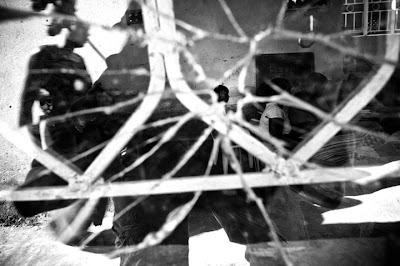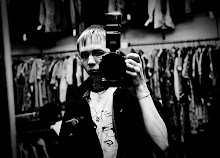

Photo 1: commercial sex workers with a customer in bwaise slum, Kampala.
Photo 2: for most girls, prostitution is a last ditch effort to make enough money to give themselves a better life. here, commercial sex workers try to learn basic english. of the very few schools in the slums, almost none of them are adequate enough to provide a platform to a higher level of education.
I’ve spent most of my last two days in Bwaise, Uganda’s largest slum, documenting what struggles that women go through in the brothels. The situation for them is nothing easy, nor is it simple. Many are pressured into prostitution by their families, others go because they see no other way to make money. no matter how they came to prostitution, it is certainly hard to get them to allow a photographer to take pictures, and it is even harder to get them to open up in conversation. This is social injustice in its finest hour.
Yesterday, I spent maybe 15 minutes with a group of women and then went to another group. The second group shut me out unless their pimp (pimps here are older women who “take care” of the girls) gave permission. Just my luck, the pimp is a completely pissed drunkard and refused to talk to me until sober unless I paid her.
I made plans to go back in the evening, to be with the girls and their “customers.” It is a big and necessary part of the story to tell. However, my guide and all of his friends strongly cautioned me against returning to the area at night. Stonings happen. Muggings happen. People are killed at night. They didn’t want to see an American killed there.
I insisted that I needed to be there—that the girls I was shooting the story about are far more important than my safety. We discussed hiring a bodyguard. My guides and I seemed to be in agreement. I left the slum to develop film some street boys shot for me the previous day.
When I was ready to return, I phoned my guide. He again cautioned me to stay away until tomorrow. I repeated what I had told him already about my purpose being there. After a few seconds of debate between us, he handed the phone to the chief of the slum, who told me it would not only be dangerous to return, but it would be near suicidal. He would be happy to give me access to everything today.
This is where the lesson comes in. It is incredibly important for journalists to calculate the efficiency and safety of their endeavors. Journalists should never be stupid—calculatedly fearless, yes, but never stupid. It is imperative to draw the line at what stupidity is, because if you can be more effective in the immediate future, it is senseless to take unnecessary risks. I ended up shooting everything I wanted to shoot last night, today, and shoot it with much more safety with better light.
For me to go back, indeed, it would have been stupid. Say I went back and I got robbed. That would have been the end of it for me. Do I want to loose a $4,000 camera to someone who wouldn’t be able to sell it for eve $400? Hell no. Do I want to loose my ability to take photos? Hell no. Do I want to kiss goodbye the iota of an idea that maybe my photos might someday be able to help someone? You guessed it: Hell no. So fellow photographers and journalists working in rough areas, take the risks when necessary, but if opportunity permits, be safe and draw the line.


2 comments:
[... ] is other great source of tips on this topic[...]
http://healthinsurance.cheap-quotes.info/
Nice brief and this enter helped me alot in my college assignement. Thank you seeking your information.
Post a Comment